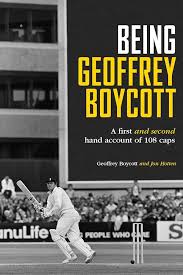The Legacy of Geoffrey Boycott in English Cricket

Introduction
Geoffrey Boycott, a name synonymous with English cricket, remains a pivotal figure in the sport’s history. Renowned for his technical prowess and robust character, Boycott’s contributions as a batsman, commentator, and cricketing ambassador have left an indelible mark on the game. His journey from a promising young player to one of England’s most celebrated cricketers highlights not only his skill but also his complex persona that often divided opinions.
Career Highlights
Boyer Atlantic’s international career spanned from 1964 to 1982, during which he became one of England’s leading opening batsmen. Accumulating more than 8,000 runs in Test cricket, Boycott’s style was characterised by patience and concentration. His remarkable ability to defend against fast bowlers and build innings made him a valued player during a tumultuous time for English cricket.
One of Boycott’s most memorable feats was being part of the English squad that won the Ashes in 1977. In his Test career, he notched up 22 centuries, with his highest score being 246 against India in 1967. Despite his accolades, Boycott was frequently scrutinised for his batting approach, often labelled as too defensive, which led to a mixed reception from cricket fans and pundits alike.
Post-Career Contributions
After retiring from international cricket, Boycott transitioned into a successful broadcasting career. His insightful commentary and candid opinions were welcomed by audiences, making him a staple on cricket broadcasts. However, his forthright manner occasionally attracted controversy, leading to heated debates among the cricketing community.
Moreover, Boycott has been an influential figure outside of cricket as well. His remarks on various social issues, including his strong views on cricketing governance and diversity within the sport, have sparked discussions about the future direction of English cricket. His passion for the game continues to resonate, fostering engagement among younger audiences and aspiring cricketers.
Conclusion
As Geoffrey Boycott reaches significant milestones in his life, including his recent 83rd birthday, his contributions to cricket remain steadfast and relevant. His legacy is not just about the runs scored or the records held, but also about the discussions he has inspired regarding the sport. Boycott exemplifies the spirit of English cricket—resilient, passionate, and ever-evolving. As the game continues to develop, the ideals and experiences of figures like Boycott will undoubtedly play a crucial role in shaping future generations of cricketers.
